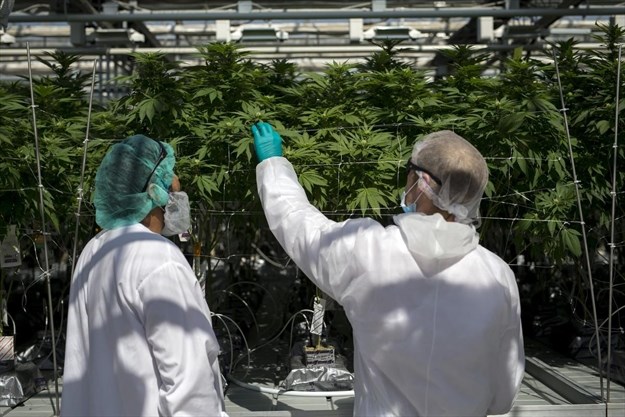You are here
Home 🌿 Recreational Marijuana News 🌿 Editorial: Higher taxes on legal pot favour the black market 🌿Editorial: Higher taxes on legal pot favour the black market

When legal recreational pot goes on sale across Canada this fall, the most angry, disappointed people should be the criminals.
That's because from the time he first promised to end 95 years of cannabis prohibition during the 2015 election, Justin Trudeau has argued one of the main benefits of this change would be the damage it would inflict on the black market.
Gone would be the vast, underworld network supplying unregulated, possibly unsafe, cannabis to Canadians, including Canadian children. Gone would be outlaw dealers, some armed, some willing to commit violence to protect their turf.
It was a compelling argument then and it is a compelling argument now. But if the prime minister believes his own words, he should reject a new federal tax being proposed for cannabis. As well as boosting federal coffers, it might have the unintended consequence of boosting the black market.
The price of any product always influences prospective buyers.
The federal and provincial governments know from bitter experience that if they tax tobacco too heavily, smokers will buy a cheaper contraband product. And the black market tobacco industry has no compunction about selling to minors.
The same thing could happen with recreational cannabis sales if a recently proposed tax is implemented.
Health Canada wants to put an annual regulatory fee of 2.3 per cent on the gross revenues of big cannabis producers. That fee could raise an additional $100 million a year in revenues, and proponents argue it would cover the government's regulatory costs for managing legal recreational pot by 2020, except for the costs of law enforcement.
At first glance, that seems reasonable. Why shouldn't recreational cannabis users and the profit-seeking producers of this product pay to regulate it, instead of all the Canadians who have no desire for a cannabis high?
But remember, this regulatory fee would be on top of the $1-a-gram cannabis tax that will already be in place when legal sales start Oct. 17. This tax will raise hundreds of millions of dollars that will mainly go to provincial governments to cover the expenses they incur in the legal-cannabis era.
A coalition of Canada's biggest cannabis producers has already pushed back, warning the 2.3 per cent regulatory fee would hurt them and help their illegal competition.
It's tempting to conclude these producers are motivated by self-interest. But even if this is partially true, the federal government should proceed with caution, perhaps postponing talk of this fee for one or two years, until the legal industry is up and running and consumers have come to rely on it.
Conversely, barging ahead with this new fee could damage the entire industry, limiting the growth of existing legal producers while discouraging new businesses from opening.
The federal Liberals have come a long way in ending prohibition. But they must show sensitivity to market forces, especially in the early days of legal cannabis.
A new study by Environics Research, for instance, suggests Ottawa's plan to strictly regulate the legal cannabis market may backfire by making the black market product more attractive to many consumers.
This strategy insists on plain packaging, no branding and consumers being unable to see what they're buying before they pay for it. And the Environics report warns many consumers will reject this puritanical approach.
With just weeks left before legal cannabis sales, the government has no time to change its entire approach to regulation.
It can, however, put a hold on that proposed 2.3 per cent fee. And it can make the criminals unhappy.
420 Intel is Your Source for Marijuana News
420 Intel Canada is your leading news source for the Canadian cannabis industry. Get the latest updates on Canadian cannabis stocks and developments on how Canada continues to be a major player in the worldwide recreational and medical cannabis industry.
420 Intel Canada is the Canadian Industry news outlet that will keep you updated on how these Canadian developments in recreational and medical marijuana will impact the country and the world. Our commitment is to bring you the most important cannabis news stories from across Canada every day of the week.
Marijuana industry news is a constant endeavor with new developments each day. For marijuana news across the True North, 420 Intel Canada promises to bring you quality, Canadian, cannabis industry news.
You can get 420 Intel news delivered directly to your inbox by signing up for our daily marijuana news, ensuring you’re always kept up to date on the ever-changing cannabis industry. To stay even better informed about marijuana legalization news follow us on Twitter, Facebook and LinkedIn.




